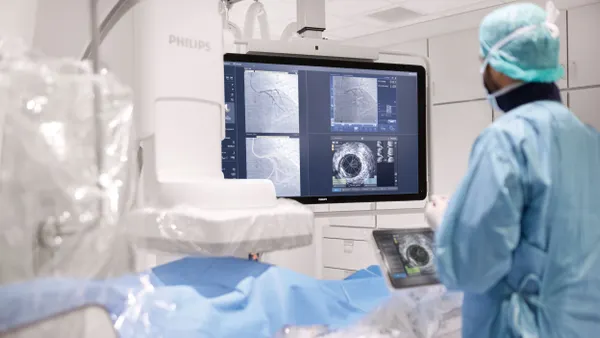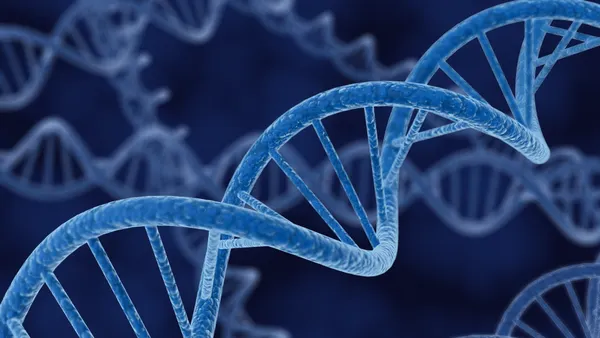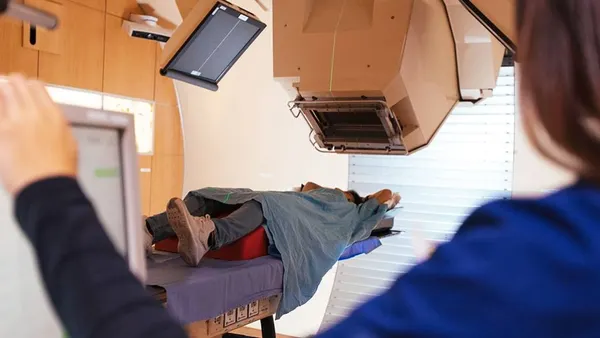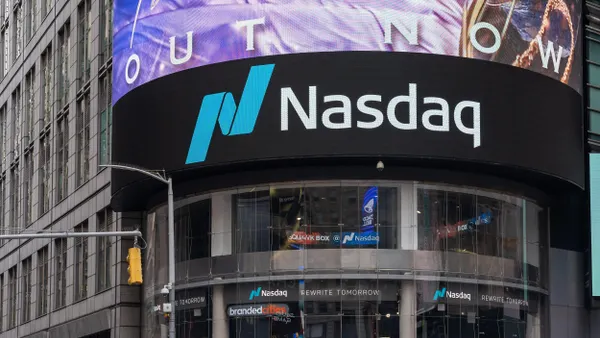Dive Brief:
-
Exact Sciences predicts the coronavirus pandemic will shave up to two years off its push to claim 40% of the U.S. colorectal cancer screening market.
-
Speaking on a second quarter results conference call Thursday, CEO Kevin Conroy said orders of its Cologuard stool-based DNA test to screen for colorectal cancer are now near pre-pandemic levels, whereas the number of colonoscopies, the established alternative to Cologuard, remains down, by the company's calculations.
-
The test maker is spending to drive a lasting move from colonoscopies to Cologuard, including by running a $70 million television advertising campaign, but may face turbulence along the way. Having returned to growth in June, Cologuard orders were flat in July.
Dive Insight:
Exact began targeting 40% market share when the goal was a distant prospect. In the fourth quarter of 2018, it claimed a 4.1% market share. Six months later, the figure had risen to 5.7%. At that rate, it could take a decade to achieve its goal.
The pandemic is an opportunity to accelerate the process. Cologuard is a noninvasive at-home test, potentially making it well suited to the transition to limited face-to-face interaction between patients and healthcare providers. A colonoscopy, in contrast, requires a patient to visit their doctor for the procedure.
Conroy estimates the pandemic will enable it to hit its 40% market share target one or two years earlier than previously expected. The claim is underpinned by the demand for Cologuard and colonoscopies during the crisis.
Cologuard orders fell 60% in April but bounced back quickly. Orders were down 40% in May but grew in June. The accelerating spread of COVID-19 resulted in flat orders in July. Even so, Exact’s figures suggest Cologuard recovered faster than colonoscopies. Exact estimates colonoscopy volumes remain down 30% to 40%, compared to a roughly 66% plunge at the start of the quarter.
Conroy attributed the speed of the Cologuard recovery to the addition of 5,000 ordering physicians in the quarter, plus rising demand from existing customers. “Some of the providers that previously had ordered occasionally, just really sporadic orders of Cologuard, are ordering at a much higher level now,” Conroy said.
The challenge is to make the switch from colonoscopies to Cologuard permanent. Conroy said the lasting impact of COVID-19 may help that process, stating that there is a “significant backlog” of screening colonoscopies from the 1 million procedures missed in the second quarter. Conroy expects capacity to remain limited, causing gastroenterologists to prioritize urgent work even as the pandemic recedes.
There is growing recognition that the deferral of screening tests and procedures may be storing up problems. The National Cancer Institute estimates the effect of COVID-19 on breast and colorectal screening and care will cause almost 10,000 excess deaths over the coming decade. Exact wants to position Cologuard as the answer to that problem.
To do so, Exact Sciences is running a television advertising campaign and has established processes to enable people to order Cologuard from home. Conroy expects the increased awareness generated by the activities to “persist well beyond the pandemic.”
Exact Sciences is trying to seize the opportunity while contending with the disruption caused by the pandemic. Despite Cologuard demand rebounding, screening sales fell 34% in the second quarter. The decline was offset by $34.6 million generated by Exact’s COVID-19 test. That tailwind will be temporary, with Conroy saying the “goal really is to help as much as we can and then to exit this business."
Cologuard is intended for those at average risk for the disease and won a label expansion last year lowering the age for 45 for its intended patient population. But it's not without competition or challenges. A CMS-sanctioned study last year concluded Cologuard is "less effective and considerably more costly, making it an inefficient screening option," than other screening options.











